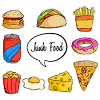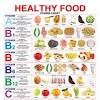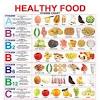3 Ways to Boost Your Energy Before a Workout
A lot of people think that working out is only for people who are already in shape. But the truth is, working out is for everyone—regardless of your current fitness level. However, starting (or getting back into) a workout routine can be daunting. One of the hardest parts is mustering up the energy to actually do it.
If you’re struggling to get motivated, don’t worry. You’re not alone. In this blog post, we’ll give you three tips on how to boost your energy before a workout. By following these tips, you’ll be one step closer to becoming the fittest version of yourself. Let’s get started!
1. Eat a nutritious meal or snack.
This one might seem like a no-brainer, but it’s important to fuel your body with healthy food before you work out. Eating nutritious foods will give you sustained energy throughout your workout instead of a sugar high followed by an inevitable crash. So, what should you eat? Some great options include fruits and vegetables, whole grains, lean proteins, and healthy fats.
2. Drink plenty of water.
Staying hydrated is crucial for maintaining energy levels—not just during a workout but throughout the entire day. If you’re not properly hydrated, your body has to work harder to function properly, which can lead to fatigue and low energy levels. The general rule of thumb is to drink eight 8-ounce glasses of water per day. But if you’re planning on working out, you should drink even more than that. A good rule of thumb is to drink half of your body weight in ounces of water each day. So, if you weigh 160 pounds, you should drink at least 80 ounces of water per day—more if you can!
3. Get enough sleep.
This one might seem obvious, but it’s worth repeating: Getting enough sleep is essential for having enough energy to work out (or do anything else, for that matter). Most adults need between seven and eight hours of sleep per night—but some people need more or less than that. Pay attention to how you feel after getting different amounts of sleep, and adjust accordingly until you find the sweet spot for you. Once you find the right amount of sleep for you, make sure to stick to a regular sleep schedule as much as possible so that your body gets used to it and can perform at its best.
If you’re struggling to find the energy to start (or get back into) a workout routine, don’t worry—you’re not alone! In this blog post, we’ve given you three tips on how to boost your energy before a workout: eating a nutritious meal or snack; drinking plenty of water; and getting enough sleep each night. By following these tips, you’ll be well on your way to becoming the fittest version of yourself in no time!
How can I boost my energy before a workout?
How To Get Energy Before A Workout
- Eat Two To Three Hours Beforehand.
- Have A Quick Pre-Workout Snack.
- Hydrate, Hydrate, Hydrate.
- Drink Something Caffeinated.
- Choose A Fun Routine.
- Reschedule Your Workout.
- Take A Power Nap.
- Go Outside.
What is the best thing to eat for energy before a workout? Apples, bananas and oranges are a cinch to grab on the go or to toss in your gym bag. Plus, they’re packed with easy-to-digest, energizing carbohydrates (roughly 15 to 20 grams of carbs apiece). As important as pre-exercise fuel is, don’t forget to replenish afterward.
What food gives immediate energy?
12 Foods That Give You An Energy Boost
- 12 energy boost foods that will fuel you up in the best way.
- Greek Yogurt. There’s more protein in Greek yogurt than other kinds of yogurt, and protein is key for optimal energy.
- Bananas.
- Sweet Potatoes.
- Mint.
- Oranges.
- Whole Grains.
- Quinoa.
What is a quick energy boost? Get moving. Exercise is a natural energy booster, because whenever you do it, oxygen-rich blood surges through your body to your heart, muscles, and brain. Regularly squeezing a workout into your day — even if you can spare only 10 minutes at a time — will help keep your energy levels at their peak.
How can I boost my energy before a workout? – Additional Questions
How can I boost my energy?
9 tips to boost your energy — naturally
- Control stress.
- Lighten your load.
- Exercise.
- Avoid smoking.
- Restrict your sleep.
- Eat for energy.
- Use caffeine to your advantage.
- Limit alcohol.
What is given for instant energy?
Carbohydrate is essential as the most immediate and efficient fuel to the muscles. In its circulating form in the blood, carbohydrate is called as glucose, and its storage form in muscles and in the liver is called as glycogen.
What foods get rid of fatigue?
Certain foods may help you avoid fatigue.
- Unprocessed foods.
- Fresh, seasonal fruits and vegetables.
- Non-caffeinated beverages.
- Lean proteins.
- Whole grains and complex carbs.
- Nuts and seeds.
- Water.
Which fruit is best for energy?
The following fruits may help boost energy:
- Bananas. Share on Pinterest Bananas are rich in potassium.
- Avocados. Avocados are a well-rounded fruit in terms of health values and nutrients.
- Goji Berries.
- Apples.
- Strawberries.
- Oranges.
- Dark berries.
What food keeps you awake?
Foods that contain caffeine include:
- chocolate.
- coffee, including decaf, though in lower amounts than regular.
- foods that contain kola nut as an ingredient.
- green and black teas.
- guarana.
- yerba mate.
- energy drinks.
- foods that contain caffeine or coffee as an ingredient, such as tiramisu.
What are the 3 foods that cause fatigue?
Examples of foods that could increase fatigue throughout the day include:
- sugary foods, including syrup and honey.
- white bread.
- baked goods.
- high caffeine drinks.
- heavily processed foods, such as potato chips.
How do I stop being tired fast?
Self-help tips to fight tiredness
- Eat often to beat tiredness.
- Get moving.
- Lose weight to gain energy.
- Sleep well.
- Reduce stress to boost energy.
- Talking therapy beats fatigue.
- Cut out caffeine.
- Drink less alcohol.
What is the best vitamin for tiredness?
The 5 Best Vitamins for Energy & Tiredness
- Vitamin B1 (Thiamin)
- Vitamin B2 (Riboflavin)
- Vitamin B3 (Niacin)
- Vitamin B5 (Pantothenic acid)
- Vitamin B6 (Pyridoxine)
How can I boost my energy naturally?
9 Natural Ways to Boost Your Energy Levels
- Get more sleep. Many people cut into hours that should be spent in bed, such as pushing back bedtime to meet a deadline or study for an exam.
- Reduce stress.
- Move more.
- If you smoke, consider quitting.
- Limit alcohol.
- Eat a nutritious diet.
- Limit added sugar.
- Stay hydrated.
What Vitamin gives most energy?
The majority of research indicates that vitamin B is the most powerful vitamin for energy. The energy-boosting properties of B vitamins are frequently found in various energy drinks and supplements. Vitamins work to help your body maintain its energy levels, particularly brain function and alertness.
Is B12 or B6 better for energy?
Vitamin B12 along with B6 are best for energy. Almost every cell in the body uses B12. Besides helping form red blood cells, B12 converts fat and protein to energy. A B12 deficiency causes tiredness and anemia.
Does B12 help with energy?
In fact, one of the most common early signs of vitamin B12 deficiency is fatigue or lack of energy. Vitamin B12 is involved in energy production in your body. Taking a supplement may improve your energy level, but only if you’re deficient in this vitamin.
Should I take B12 or B complex?
When it comes to the issue of vitamin B12 vs B complex, both types of vitamins are crucial. If you’re lacking B12, consume more of it via supplements or food. If you’re lacking vitamin B in general, consider B complex vitamins instead. Overall, both vitamins are essential nutrients.
What deficiency causes tiredness and fatigue?
One possible reason for feeling tired, anxious, and weak is having low levels of iron, vitamin D, or B12. Many experts believe that a significant percentage of the U.S. population is deficient in vitamin D. Having low levels of vitamin D can cause muscle weakness and pain.
Should you take B12 everyday?
Safety and side effects. When taken at appropriate doses, vitamin B-12 supplements are generally considered safe. While the recommended daily amount of vitamin B-12 for adults is 2.4 micrograms, higher doses have been found to be safe. Your body absorbs only as much as it needs, and any excess passes through your urine
What are the symptoms of low B12?
Symptoms of vitamin B12 deficiency
- a pale yellow tinge to your skin.
- a sore and red tongue (glossitis)
- mouth ulcers.
- pins and needles (paraesthesia)
- changes in the way that you walk and move around.
- disturbed vision.
- irritability.
- depression.
Can you take vitamin D and B12 together?
Interactions between your drugs
No interactions were found between Vitamin B12 and Vitamin D3.



